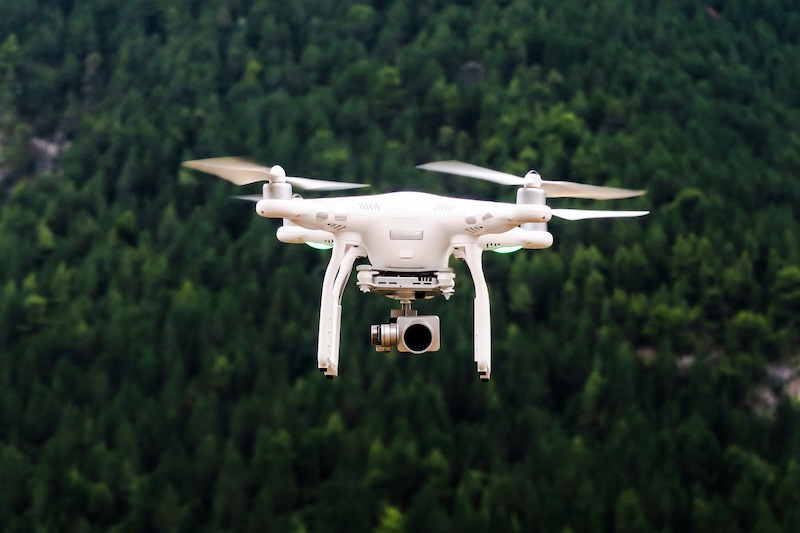Does Renters Insurance Cover Electronics?
Good news: Your renters insurance can provide protection for your digital belongings.

Good news: Your renters insurance can provide protection for your digital belongings.

In the digital age, our lives revolve around electronics, from laptops and smartphones to TVs and cameras. But what happens if these beloved gadgets get damaged or stolen? Renters insurance will typically cover your electronics.
Let’s take a look at the fine print.
Electronics are typically covered by renters insurance when damage or loss occurs due to a covered peril, aka “named perils”. These risks usually cover all sorts of situations, including but not limited to:
If your personal electronics are stolen from your home, vehicle, or even from your hotel room while traveling, your renters insurance can typically help reimburse you for the theft.
Any intentional damage others cause to your items, aka vandalism, is generally included in your coverage. This means if someone breaks into your home and damages your devices, your renters insurance will generally cover the damage to your personal electronics.
Fire damage to your electronics is a common covered loss. If a fire occurs in your home and damages your devices, your policy can generally help cover the costs of repairing or replacing them with something comparable.
Certain types of water damage, such as burst pipes, may be covered under renters insurance. However, it’s important to note that flood damage from natural disasters requires a separate flood insurance policy, as it is not included in standard renters coverage.
Damage resulting from strong winds, including those from hurricanes or severe storms, is generally covered under most renters insurance policies. In order for storm damage to be covered, the storm must have created an opening in the walls or roof of your rental home, and the wind or rain that damages your electronics must enter through the opening.
If a fire occurs nearby or within your home, and the smoke damages your electronics, your renters insurance can generally help cover the repair or replacement costs.
Understanding these covered risks can help you choose the right renters insurance and make sure your valuable electronics are well protected.
While renters insurance provides a broad range of coverage to protect your valuable electronics, there are certain situations where your personal electronics may not be covered. These exclusions typically include:
Drops, spills, and other accidental damages are common occurrences that can happen to anyone, and it’s important to note that these types of incidents are often not included in standard insurance policies.
To boost your coverage for valuable items, like a new DSLR camera, you can opt for adding Extra Coverage at an additional cost. This option can protect your valuable belongings against accidental damage.
While these things may need appraisals or other proof of purchase—more on all that here—the process is extremely easy using the Lemonade app.
Standard policies usually don’t cover normal wear and tear, which is essentially the gradual decline of items from regular use.
Deliberate damage to your electronics—like impacts such as throwing your PS5 remote at your TV after losing a round of Call of Duty, or misuse like leaving your smartphone locked in a hot car on a 95 degree day—won’t be covered by a renters insurance policy. So, it’s a good idea to handle your devices with care to keep them safe.
Leaving your electronics unattended in vulnerable situations, such as in crowded places or during travel, might mean a loss won’t be covered. It’s important to keep a close eye on your devices to make sure they remain protected.

Renters insurance usually covers most of your personal electronics, but it’s good to know the details of what’s included. Common electronic items generally covered by renters insurance include:
Laptops are usually protected against various unexpected events, such as theft or damage from events like fire or water leaks from burst pipes. If your laptop, computer, or tablet is stolen or damaged due to a covered peril, your policy can help cover the costs of repair or replacement, although it’s wise to verify coverage limits for high-value items like laptops with your insurer.
Cell phones are also commonly covered for theft and certain types of water damage, but accidental damage, like dropping your phone, is typically not covered.
Cameras, including DSLRs and other photography equipment, fall under personal property coverage and are generally protected against named perils such as theft and fire. For those looking for comprehensive protection against accidental damage or loss, purchasing Extra Coverage is a good way to make sure your camera equipment is fully protected.
Televisions can be covered for damage caused by events like storms or vandalism, but damage from accidental incidents or wear and tear is usually never covered by insurance. Additionally, losses caused by electronic or mechanical failure typically isn’t covered unless you have extra endorsements like Equipment Breakdown Coverage.
Whether you’re team X-Box or team PlayStation, your preferred gaming console is generally covered by renters insurance under personal property coverage.
While all of these electronics are generally covered by renters insurance, it’s important to remember that there are a bunch of different policy limits, that can vary by:
Remember to always check the details of your policy to confirm your policy limits for different items, and your deductible.
Think your gadgets aren’t worth much? Think again. Here’s what you’re really protecting when you cover your electronics:
| Device | Average device lifespan (years) | Lifetime cost |
|---|---|---|
| Smartphone | 2.64 | $26,187 |
| Laptop | 5.85 | $13,755 |
| Tablet | 4.72 | $10,566 |
| Smartwatch | 3 | $8,801 |
| Headphones | 2.7 | $5,668 |
| Smart TV | 6.6 | $5,899 |
| Game console | 6 | $4,507 |
| Video doorbell | 3.5 | $3,172 |
| Smart speaker | 5 | $2,504 |

While renters insurance generally covers most personal electronics, there are some exceptions, including:
Renters insurance can be a vital tool in protecting your electronics and other stuff against a bunch of other bad things, called named perils. While renters insurance can protect your stuff, aka personal property coverage, it can also cover some other things, including:
Ready to get started? Click below to get your free quote today, it’s quick, easy, and even a little fun.
A few quick words, because we <3 our lawyers: This post is general in nature, and any statement in it doesn’t alter the terms, conditions, exclusions, or limitations of policies issued by Lemonade, which differ according to your state of residence. You’re encouraged to discuss your specific circumstances with your own professional advisors. The purpose of this post is merely to provide you with info and insights you can use to make such discussions more productive! Naturally, all comments by, or references to, third parties represent their own views, and Lemonade assumes no responsibility for them. Coverage and discounts may not be available in all states.
Please note: Lemonade articles and other editorial content are meant for educational purposes only, and should not be relied upon instead of professional legal, insurance or financial advice. The content of these educational articles does not alter the terms, conditions, exclusions, or limitations of policies issued by Lemonade, which differ according to your state of residence. While we regularly review previously published content to ensure it is accurate and up-to-date, there may be instances in which legal conditions or policy details have changed since publication. Any hypothetical examples used in Lemonade editorial content are purely expositional. Hypothetical examples do not alter or bind Lemonade to any application of your insurance policy to the particular facts and circumstances of any actual claim.